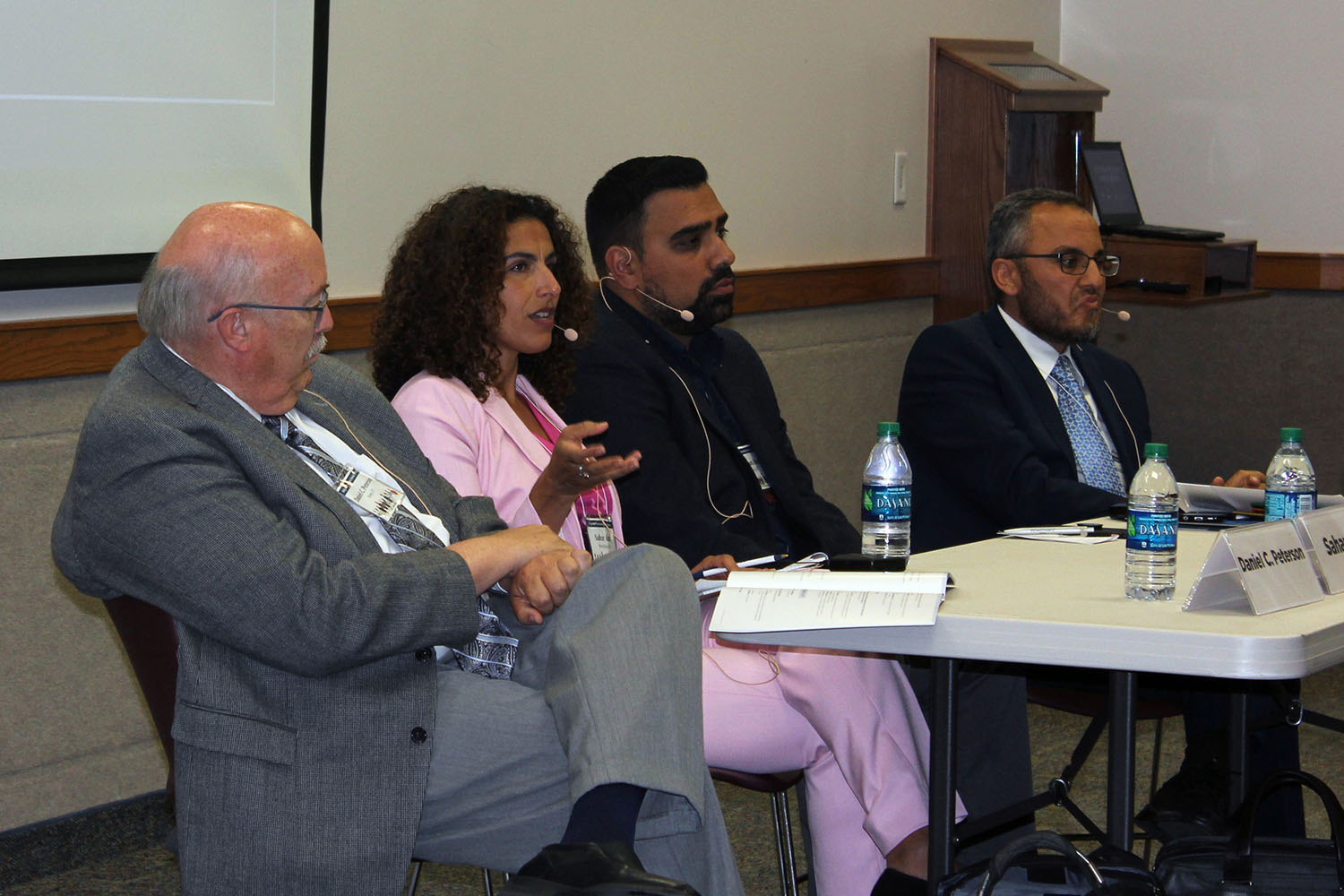Workshop: Religious Freedom Issues Facing American Muslims

By Austin Atkinson, 2018 ICLRS Student Fellow
This breakout session was moderated by Daniel C. Peterson, Professor of Islamic Studies and Arabic, Department of Asian and Near Eastern Languages, Brigham Young University. The panel of speakers included Sahar Aziz, Professor of Law and Chancellor’s Social Justice Scholar, Center for Security, Race, and Rights, Rutgers University Law School, Haroon Azar, Senior Fellow, Burkle Center for International Relations and Program Director, Initiative on Security and Religious Freedom, UCLA, and Ossama Bahloul, Resident Scholar, Islamic Center of Nashville and Founder of Islamin500.org.
The panel fielded questions from Peterson, including discussion about the current general atmosphere for American Muslims, feelings and thoughts about the proposed immigration ban and the impact it might have, how various Muslim groups have dealt with opposition in local communities, and what it means to be an American.
Sahar Aziz pointed out that while religious freedom for Muslims is there in theory, it is rather unstable in practice. There may be phases of less discrimination, but it seems to only last until there is another terrorist attack or formation of a terrorist organization. Aziz pointed to the shift in responses from American Muslim communities since the September 11 attacks in 2001, with the present-day growth of Islamophobia in the mainstream forcing the younger generation of American Muslims to take the reins of leadership with newer strategies to resist backlash. Overall, there has been an increase in cross-community and interfaith relations approaching these phobias with dissonance. Aziz directed anyone interested on learning more to the Institute for Public Understanding’s website, ispu.org, and stressed that the public should not rely on being educated on these issues by uneducated people.
Haroon Azar shared stories about the struggles young American Muslims face simply because they look different. He also addressed the wakeup call that was the so-called “Muslim ban,” and how startling it is that such an outward manifestation of xenophobia is suddenly acceptable. Azar noted that some city councils resist the construction of mosques for unfounded reasons, such as concerns surrounding parking areas. He noted that while times may seem bleak for Muslims in the US, there is encouragement found in the growing support from different faith-based groups, with some of the bigger law firms taking cases for Muslim communities pro-bono.
Ossama Bahloul noted that different parts of the American Muslim community will give you different answers to these questions about religious freedom, though it is fair to say that there are struggles across the spectrum. Bahloul expressed concern for America’s image, pointing out that discrimination does not only hurt the Muslim communities, but puts America’s richly diverse image in danger. He addressed the importance of discussing religious freedoms openly and supporting the Constitution: “How can someone go overseas for missionary work, but not be willing to invite others into their own neighborhoods and communities?” Bahloul emphasized the need to speak with each other about these issues, rather than about each other.